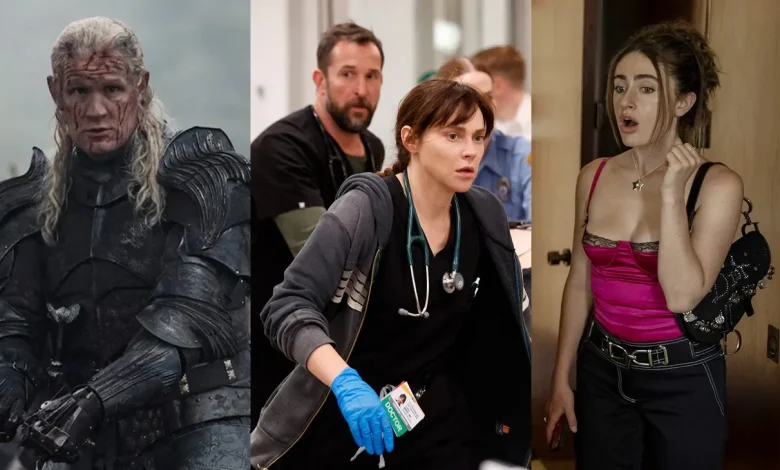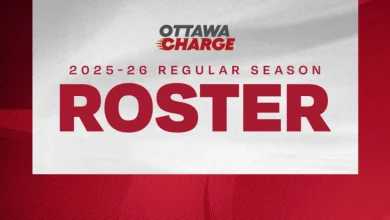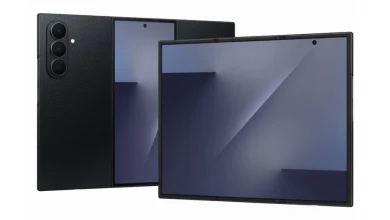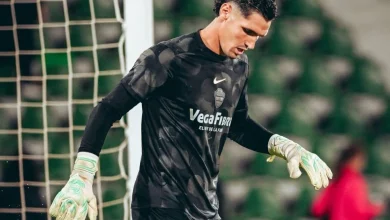HBO Max’s Big Plan: Be HBO Again

A funny thing happened over the course of the streaming wars: As the end goal of the tech and media companies became global TV domination, the niches and specialities of many companies faded away (even Disney and ESPN with their strong consumer brands have been joined at the streaming hip to Hulu).
That was certainly true at Warner Bros. Discovery, which inherited HBO and HBO Max, and rejiggered them into Max. Why? Well as WBD streaming chief JB Perrette said at the time: “While [HBO Max and Discovery+] offered something for some people, Max will have a broad array of quality choices for everybody.”
The result was that HBO, the most premium of premium TV companies, became absorbed into something that was meant to be a Netflix-killer.
As HBO Max CEO Casey Bloys told reporters Nov. 20 in the company’s Hudson Yards offices, that ended up being a fool’s errand: “To Netflix’s credit, as the first mover, they have become a utility for consumers,” Bloys said. “In retrospect, we can all see that the streaming industry’s race for volume, years ago, found many brands losing their identity.”
In a world where Netflix and YouTube are the video utilities, media companies need something else to stand on. So Bloys has been undertaking an effort to make Max HBO again. That started, of course, with the surprise announcement in May that the company was rebranding.
“I know you’re all shocked, but the good news is I have a drawer full of stationery from the last time around,” Bloys quipped at the time.
But the jokes underscored a meaningful strategic shift. No longer was WBD trying to compete with Netflix for global domination, they were playing to be the premium layer sitting above it.
“[Netflix] is the basic cable of today, and in today’s world, consumers still want to add to their entertainment portfolio with must-have truly unique programming that only we can deliver,” Bloys told the audience of journalists Thursday. “We looked at all the research and came back to what they want are HBO originals, pay-one movies, the Warner Bros. TV library, the procedurals, for lack of a better word, but the elevated network [programming] that we’re working on, documentaries, comedy specials. We just came back from trying to offer too much, so we are trying to be very specific in what people value from us, and want from us.”
Casey Bloys during Warner Bros. Discovery’s 2025 Upfront Presentation at The Theater at Madison Square Garden on May 14, 2025 in New York City.
Dimitrios Kambouris/Getty Images
There are signs that it is working. HBO Max has been growing at a time when other streamers are stagnating. HBO, it turns out, still means something to a lot of media consumers.
But the new HBO isn’t quite the same as the old HBO. Back in the heyday of the brand, original adult dramas and comedies lived alongside a vast library of the biggest movies on the planet. But streaming has changed the movie business, not only tweaking the types of projects that get made, and how many get released, but with companies like Disney, NBCUniversal and Paramount now hoarding their projects for their own platforms.
The TV business has changed too. Broadcast TV, once the home for a seemingly endless supply of procedurals, has been cutting back on scripted entertainment in favor of more unscripted shows and live sports. Cheaper content, or must-watch content, with scripted often the odd man out.
So Bloys has embarked on a mission to figure out how to HBO-ify those missing pieces, to find a suitable replacement for the licensed blockbuster films that once dominated HBO’s lineup, and to find a way to take the humble network show and make it HBO-worthy.
The result has been two-fold: IP tentpole fare led by Game of Thrones, DC Studios, and Harry Potter and other Warner Bros. library content, which is meant to offset the loss of many films (Warner Bros. and A24 output deals notwithstanding): “That affinity and immediate awareness paired with HBO’s singular approach to storytelling has proven very valuable to filling that theatrical void,” Bloys said, announcing renewals for House of the Dragon and A Knight of the Seven Kingdoms, which will keep GoT programming on a yearly cadence through at least 2028.
And then there’s the Max Originals. Bloys acknowledges that it took a little time for them to figure out what a Max Original really is in relation to an HBO Original (“Until recently, a Max Original may have been a bit nebulous for you, you’ve probably asked me about it, a bit nebulous for you, a bit nebulous for me,” he quipped). But, he says, they’ve cracked it.
“I can say now that Max Originals serve a very specific purpose: We are leaning into more cost-efficient, yet elevated and high quality series with a greater number of episodes that can return each year,” Bloys said, with The Pitt being the quintessential example. “These originals are designed to attract audiences that are adjacent to the typical HBO fans, while also feeding our strategy to deliver 52 weeks of new programming a year.”
Bloys added that having elevated broadcast fare, from procedurals like The Pitt and some upcoming projects in development like a police drama, a family drama and the Big Bang Theory spinoff Stuart Fails to Save the Universe, provides a reliable cadence to consumers who have grown frustrated with years-long gaps between other high-profile shows.
“That kind of habitual viewing, not only week to week, but on an annual basis, is really important in terms of setting habits,” Bloys noted.
The Pitt
Warrick Page/HBO Max
And having seasons that expand beyond the 8-10 episodes that have become common in streaming could ultimately generate not only richer universes of characters and IP, but could prove to be training grounds for the next generation of creative talent.
“As an industry, we’ve gotten away from television, which when I started, it was 26 episodes, then the standard kind of whittled down to 22 episodes,” Bloys said. “But you really have to kind of set that up from the beginning to give yourself worlds that generate, in [The Pitt’s] case, 15 hours of story. It’s why hospital shows were a staple, because a new story — or several — walk in the door every time. You know you have to set up first, a world that generates the story, and you also have to work with people who know how to do that, who’ve worked on it for years. It is a different skill, I would say, generating 15 episodes of compelling stories, as opposed to crafting eight to 10.”
But the heart of HBO is still the HBO Original shows, and Bloys and his team are still executing on those, full steam ahead. Curb Your Enthusiasm might have ended, but Larry David is back (with the Obamas!) for a new comedy series. Entourage and Girls are in the past, but I Love LA is helping to fill that void with a voice that is uniquely Rachel Sennot’s, while Euphoria returns with a cast that jumpstarted multiple movie careers.
“What we’re usually looking for is a point of view,” Bloys said. “We’ve got a long history, going back to Gary Shandling, Larry David, Lena [Dunham], Issa Ray, Danny McBride, we’ve got a long history of writer performers, especially in comedy, it’s a really good combination to give you a specific tone and point of view.”
The adult dramas and dramedies that helped define the cable channel are still a cornerstone, from The White Lotus and Task to the forthcoming DTF St. Louis.
Jason Isaacs and Parker Posey in ‘The White Lotus’ season three finale.
Fabio Lovino/HBO
The result is a mix of programming that serves multiple audiences but carries with it a compelling throughline: Whether it’s House of the Dragon, The White Lotus, The Pitt, or I Love LA, an HBO show is a good show. Not every show will be for every HBO Max subscriber, but every HBO Max subscriber knows that every show has a level of quality that they respect.
“You have to start with, what’s a good show. What do we believe in? What is a good script?” Bloys said, adding that his team doesn’t set any guidelines on how many HBO Originals vs. Max Originals vs. IP-driven tentpoles get the green light. “The great thing about development is you just give yourself as many options as possible in all of the formats and genres that you saw [Thursday].”
HBO’s tagline, for years, was “It’s not TV, It’s HBO.” It was brand positioning that placed HBO above the vast array of channels at every consumer’s fingertips. HBO floated above the fray, and it made it into a culture-defining brand.
Bloys is once again leaning into that ethos. Streaming might be the delivery mechanism by which people get their fix, but they aren’t watching “streaming,” they are watching HBO Max.





